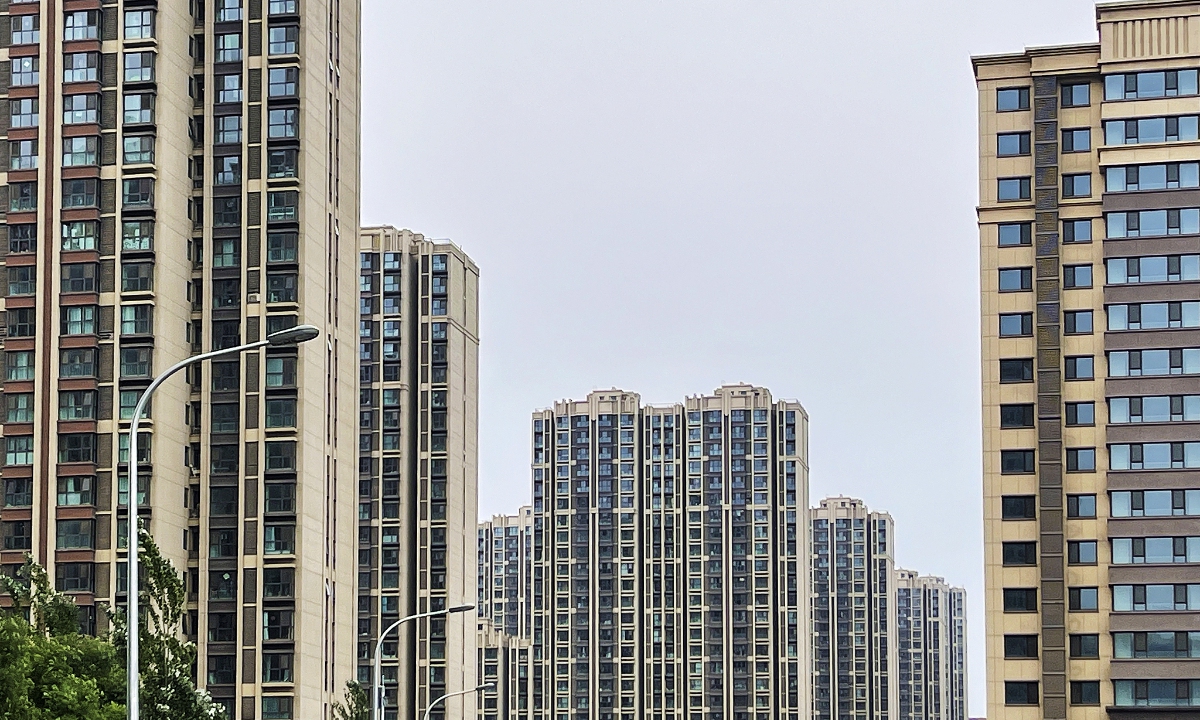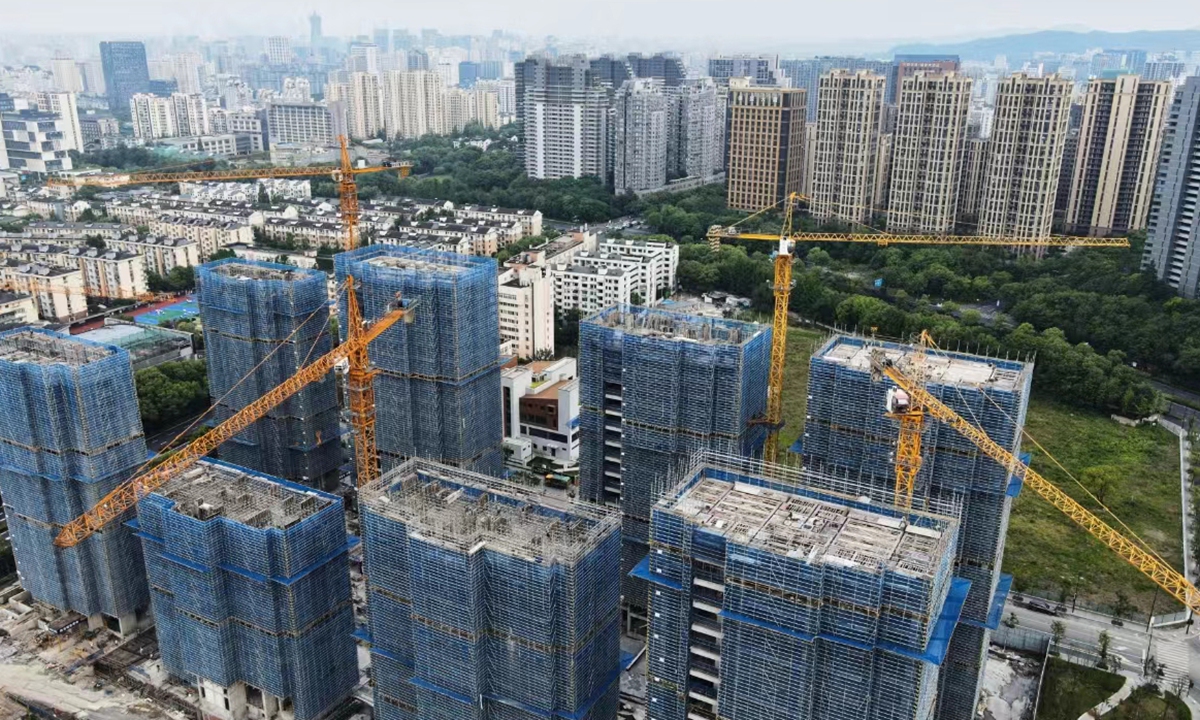China rolls out tax incentives to boost housing market
‘Major boon’ could further revitalize transactions of homes: expert

File Photo:VCG
Three Chinese ministries rolled out a package of tax incentives to invigorate the real estate market on Wednesday, in what an analyst said would be a sizable boon to support the healthy development of the housing market.
Following the pledges by the country's finance minister earlier, the Ministry of Finance, along with the State Taxation Administration and the Ministry of Housing and Urban-Rural Development, rolled out pro-housing tax policies on Wednesday, lowering the deed taxes to 1 percent for purchases of first homes and second homes under 140 square meters. These tax rates were previously only available for homes under 90 square meters.
The minimum prepayment rate for the land appreciation tax will be lowered to alleviate the financial difficulties of real estate companies, according to the three authorities.
The authorities will also clarify policies on value-added taxes and land appreciation taxes in line with the scrapping of standards for ordinary and non-ordinary housing, reduce secondhand housing transaction costs and keep tax burdens on real estate companies stable.
The latest incentives, which were revealed to the public by Minster of Finance Lan Fo'an on Friday, followed a series of supportive polices to prop up the real estate market, which has in recent weeks showed signs of continuous recovery.
Yan Yuejin, research director at Shanghai-based E-house China R&D Institute, told the Global Times on Wednesday that the new policies, effective from December 1, are a major boon for homebuyers seeking an upgrade, and will slash purchasing costs in home transactions, invigorate housing markets in first-tier cities and foster the positive development trend of the property sector.
"The effect in a first-tier city will be bigger. For a deal valued at 1 million yuan ($138,648), the deed tax reduction from a previous high of 3 percent can be 20,000 yuan," Yan said.
As the government's incremental pro-growth policies are further implemented, it is expected to further stimulate the housing market in the fourth quarter, analysts said.
Chinese lawmakers approved on Friday a State Council bill on raising the ceiling on local government debt by 6 trillion yuan to replace existing hidden debts.
The latest arrangement on the debt ceiling will effectively mitigate the impact of a lack of funds faced by local governments from shrinking land sales, and there may be more support policies aimed at tackling the issue of idle land to be rolled out, Yan said.
Multiple cities across China are reporting the latest home sales data that reflect a continued warming trend of the property market, as financial and housing policies to support the healthy development of the property market take effect.
New home subscriptions in South China's tech hub Shenzhen reached 4,314 units during the first 10 days of November, which was 34 percent higher than the corresponding period in October, according to Shenzhen Special Zone Daily.
Suzhou in East China's Jiangsu Province has seen its real estate market stabilize as the transactions for new homes and secondhand homes both registered growth in October, according to a WeChat account run by the city government on Tuesday.
The latest data came after real estate transactions in October outpaced those of September, an unusual situation for the property market, largely driven by the introduction of economic stimulus policies.
In October, the real estate market improved, with several indicators showing year-on-year growth after a prolonged period of declines, according to the Ministry of Housing and Urban-Rural Development.
On October 17, the Ministry of Housing and Urban-Rural Development, along with four other government departments, held a press conference to announce new policy measures to stimulate property sales. Officials announced plans to increase the credit limit for "whitelist" housing projects to 4 trillion yuan by the end of 2024.
The "white list" mechanism launched in January allows local authorities to recommend that financial institutions provide support to eligible real estate projects.
At the press conference, Minister of Housing and Urban-Rural Development Ni Hong said that stimulated by a series of policies, China's real estate market has started to bottom out after three years of adjustment.
As of October 31, bank loans extended to the eligible "white list" housing projects had reached 3 trillion yuan, according to the Securities Daily on Wednesday.



